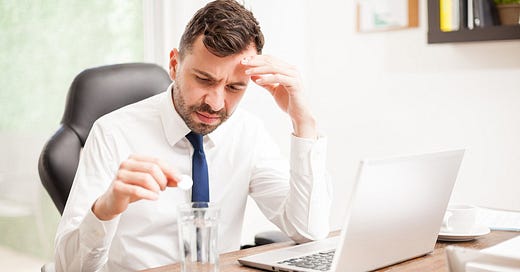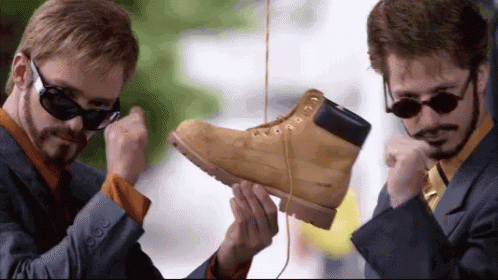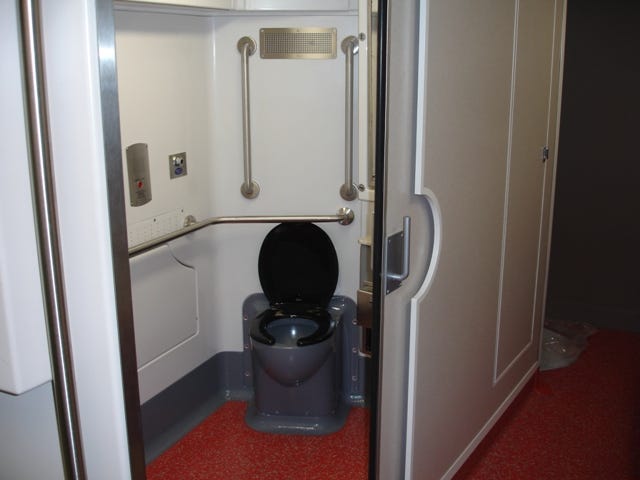The only professional requisite worse than forced RTO is forced socialization, especially for this author who is an introvert (albeit a relatively social one.)
There are a lot of trends mentioned by the WSJ in this article about post-work socialization and its current fall-off. And a few left off. Let’s dive in.
Younger Generations Are Drinking Less
It’s true, and it’s not necessarily a bad thing (unless, of course, you’re an alcohol conglomerate that has not diversified into the non-alcohol/low-alcohol trend.)
While alcohol is highly normalized in western society, the public health effects of it are difficult to wrap one’s head around. And while there are the obvious deaths from alcohol (acute alcohol poisoning, DUIs, etc.), it’s the longer-term effects of alcohol on the body that are the ticking time bombs from a public health and economic lens.
When considering the fiscal effects of alcohol (direct costs like healthcare, criminal justice system costs for alcohol-related offenses, insurance claims from drunk driving accidents) and indirect costs (absenteeism from work, early retirement or death leading to lost productivity, etc.) the economic loss approaches $1000 per person per year. That’s a staggering 1.5% of GDP in the US (or $350 billion.)
So maybe it’s not such a bad thing that people are drinking less?
(Quick editorial aside: If you think you have a drinking problem, there are numerous resources to take advantage of. From AA in a traditional sense to the alternatives available, there is always help. For those simply looking to cut back, there is a growing movement called sober curious based on this book, which this author is unashamed to say has been helpful and eye-opening.)
People Got Dogs (I’m Not Kidding)
Almost 20% of American households got a dog during the pandemic. All well and good if you’re perma-WFH, but now that we’re RTO-ing under duress, it’s not as much fun as it once was.
Younger dogs or isolated dogs aren’t as socialized so they can’t just be dropped off at doggy daycare. And even if they are good enough to not be bite machines, the wait lists for these places are sometimes months long.
Even if you can get into a doggy daycare, who wants or has the extra funds (on top of new commuting and other RTO expenses) to add that to their debits list? It seems to be a major contributing factor in the insanely depressing trend of people simply “returning” pets to shelters.
Kids: Even Worse Than Pets
While not explicitly called out by the Journal in their article on why no one wants to get blitzed with their coworkers once they slam their laptops closed for the day, I would venture to guess the increase in babymaking is driving part of this trend. The issues related to dogs (daycare waiting lists and costs, namely) are exponentially worse with kids, and they tend to be a lot harder to return.
At the beginning of the pandemic birth rates actually declined, but Americans wasted little time getting back to business to spur a baby boom in the years following.
And kids require even more attention than dogs. You leave your three-year-old dog for a couple of hours to grab drinks at the bar, no one bats an eye. Do that with a kid and all of a sudden you’re “Not a great dad” and “Referred to CPS.”
The rush home from work is to be able to walk through the door to the most stressful part of the day: getting the kids fed, bathed, and in bed with minimal meltdowns (not zero - minimal). Skipping it for happy hour to dump all on your partner isn’t the best look, except for the rarest of occasions.
Even when they get older and become somewhat self-sufficient (basically able to give themselves a shower and not throw a shit fit at bedtime), there’s always something else going on: parent-teacher conferences, after-school activities that need shuttling to/from, sports, and on and on.
The lesson here? Having kids is a good way to ruin the post-work happy hour vibes.
My Baby Takes the [Evening] Train
Another trend seemingly missed by the Journal on why people are turning into nerds and skipping post-work binge drinking, is the fact that people have moved further away from city centers where their offices (and associated local watering holes) tend to be located.
This increased distance means a longer commute, and if there’s a suburb involved it means there’s a train timetable (with some rare exceptions: shout out Green Line D Branch!) No longer just catching the next subway or bus if you stayed for one more drink or lost track of time, the consequence turns into waiting 30+ minutes minimum for the next train in a commuter rail station with a burgeoning homeless and addict population that is overtly present outside of rush hour timeframes.
Also, unless you have an insane commute you’re not going to sober up from those five shots you did for Tim’s going away (the lucky bastard) by the time you get to your car to finish the commute home.
So Pour One Out for the Homie
The days of the office happy hour - at least for those of us lemmings who followed the demographic trends - are numbered if not fully over. One trend not really spoken about here, but worth mentioning, is the death of the 9-5 in general. For many exempt workers, 9-5 is a tough schedule to keep and rounding out the hours tends to occur whenever you can squeeze them in, for all of the reasons mentioned above.
So with all of that, I’m sorry but I can’t make your happy hour tonight.
Grab Bag Sections
WTF MTA: My commute has me going from midtown to the village, which means I can take the express to 14th, then hop on the local to get a little closer and complete my Dunks run on the way to work (need a sponsorship for the newsletter.) Nothing beats the feeling of pulling into an express station at the same time as the local - it’s like hitting Keno while waiting for your entree at the pub. If you’re not from Massachusetts, I feel sorry that you’ll never have that feeling.
But sometimes you’ll pull in and the local will already be there with doors open. You would think this is a good sign but, dear reader, it is not. Because what happens nine times out of ten is that as your express train doors open, the local train doors close and you are stuck on the platform waiting for the next one. MTA, please stop this ridiculous practice.
DALL-E Nightmare Fuel of the Week:
I recently found out that the DALL-E results on my company’s internal license are publicly viewable by everyone with the name of the prompter included. Yikes - I might need to transition to paid subscription sooner than anticipated.
Quote of the Week: “We can only tell where something is in relation to something else. And we can only assess an object or principle if we have something to compare and contrast it to. Otherwise it’s an absolute beyond evaluation.” - Rick Rubin
See you next week!









